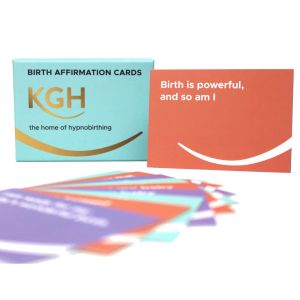
You find out you are pregnant and automatically Google ‘due date calculator’. You go to your 12-week dating scan to give you that definitive due date. Just one single day. Once you are given this date, you are so excited you shout it from the rooftops. And rightly so! Who shouldn’t know about your growing offspring and the day it will arrive?!
Creating stress with a due date
However, as that day gets closer, you start to get those well-meaning texts, calls and passing comments asking ‘has the baby arrived yet?’ Apart from being quite irritating, it also puts unwanted pressure and stress on you and your baby for no good reason other than to satisfy people’s curiosity. Stress stimulates the production of the hormone adrenaline. Adrenaline inhibits the production of oxytocin. Oxytocin is the hormone that is needed to stimulate labour. Therefore, this stress from well-being enquiries is harmful. You know your baby is healthy inside, you have had all the checks to prove it. Surely the baby will come when it is ready?
Is your due date a fallacy?
In the UK, pregnancy is generally assumed to be 40 weeks long, but the World Health Organisation’s definition of the natural length of a pregnancy is between 37-42 weeks. That could mean the difference of over a month!
The 40 weeks is calculated using the Naegele’s Rule. This rule was established by a German obstetrician in the early 1800’s and was not based on any rigorous scientific testing. Research done in the 1990 study by Mittendorf established that a pregnancy in first-time Mums lasted on average eight more days than this 40 week rule.
Many health professionals start the count from the first day of the last menstrual period. However, this can be a week or two before you actually conceive depending on how long your cycle is. The fertile period in the cycle can also vary by several days. And even if you do know the exact date of conception, the length of pregnancy varies, as with everything in nature. In fact, only around 5% of babies arrive on their due date and the average pregnancy is 41+5 days long.
Relax and enjoy this time
When we teach the KGHypnobirthing parents’ course, we explain why giving a vague answer to the “when is it due” question is a good idea. If baby is due on 1st July, you could say ’mid July sometime’. Or how about following the great example of Meghan and Harry and Kate and William who simply gave a ’due month’? Of course, there was constant speculation at the size of their bumps but no one had a clue when their babies were actually due to make an appearance. Doesn’t this make perfect sense?
And it’s not always your friends who remind you of that 40 week date – as you move closer to that due date, you may start to hear the words “induction” mentioned in your midwife appointments. Again, they are focusing on that one day!
So welcome these short few days. Treat this time as a bonus, a little holiday. Remember that ‘baby knows best’. It is said that labour is started by the baby when it is ready. This must be the biggest decision of our lives. What does it do to the baby if that decision is taken from it, and it is forced into the world before it is fully developed?
You could say that there is no such thing as a ‘late baby’; only women who have different lengths of pregnancy, and it would be strange if it were otherwise. After all, do the apples on an apple tree all ripen on the same day?
You could also take the view that every baby arrives on its due date. It’s just that they don’t tell us what it is until they get here.









